
-
Fatty Alcohol Ethoxylate 4mol,Laureth-4 AEO4 CAS NO.68439-50-9
Fatty Alcohol Ethoxylate 4mol,Laureth-4 AEO4 CAS NO. 68439-50-9 Payment:T/T Min order:1000kg Lead time:7-15 daysTags : Fatty Alcohol Ethoxylate 4mol,Laureth-4 AEO4 CAS NO.68439-50-9 Fatty Alcohol Ethoxylate 4mol,Laureth-4 AEO4 raw materials Fatty Alcohol Ethoxylate 4mol,Laureth-4 AEO4 CAS NO.68439-50-9 wholesale Fatty Alcohol Ethoxylate 4mol,Laureth-4 AEO4 high quality Fatty Alcohol Ethoxylate 4mol,Laureth-4 AEO4
-
Fatty Alcohol Ethoxylate 5mol CAS NO. 68439-50-9
Product details: Fatty Alcohol Ethoxylate 5mol CAS NO. 68439-50-9 Payment:T/T Min order:1000kg Lead time:7-15 daysTags : Fatty Alcohol Ethoxylate 5mol CAS NO. 68439-50-9 AEO5 Fatty Alcohol Ethoxylate 5mol CAS NO. 68439-50-9 Hot sale Fatty Alcohol Ethoxylate 5mol factory price AEO5
-
Fatty Alcohol Ethoxylate 7mol CAS NO. 68439-50-9
Product details: Fatty Alcohol Ethoxylate 7mol CAS NO. 68439-50-9 Payment:T/T Min order:1000kg Lead time:7-15 daysTags : Fatty Alcohol Ethoxylate 7mol factory price Fatty Alcohol Ethoxylate 7mol Hot sale AEO7 AEO7 AEO7 raw materials
-
Fatty Alcohol Ethoxylate 9mol CAS NO. 68439-50-9
Fatty Alcohol Ethoxylate 9mol CAS NO. 68439-50-9 Payment:T/T Min order:1000kg Lead time:7-15 daysTags : Fatty Alcohol Ethoxylate 9mol CAS NO. 68439-50-9 Fatty Alcohol Ethoxylate 9mol AEO 9 high quality AEO9 Wholesale AEO9
-
Fatty Alcohol Ethoxylate 10mol (Laureth-10) CAS NO.68439-50-9
Product details: Fatty Alcohol Ethoxylate 10mol (Laureth-10) CAS NO. 68439-50-9 Payment:T/T Min order:1000kg Lead time:7-15 daysTags : Fatty Alcohol Ethoxylate 10mol (Laureth-10) AEO10 Wholesale Fatty Alcohol Ethoxylate 10mol Fatty Alcohol Ethoxylate 10mol suppliers cheap price Fatty Alcohol Ethoxylate 10mol
-
Fatty Alcohol Ethoxylate 12 mol CAS NO.68439-50-9
Product details: Fatty Alcohol Ethoxylate 12 mol CAS NO. 68439-50-9 Payment:T/T Min order:1000l Lead time:7-15 daysTags : Hot sale Fatty Alcohol Ethoxylate 12 mol high quality Fatty Alcohol Ethoxylate 12 mol Fatty Alcohol Ethoxylate 12 mol raw materials AEO 12 Fatty Alcohol Ethoxylate 12 mol
-
Sodium Alpha-olefin Sulfonate CAS NO. 68439-57-6
Product details: Sodium Alpha-olefin Sulfonate CAS NO. 68439-57-6 Payment:T/T Min order:1000kg Lead time:7-15 daysTags : AOS 35 CAS NO. 68439-57-6 Wholesale Sodium Alpha-olefin Sulfonate High quality Sodium Alpha-olefin Sulfonate Sodium Alpha-olefin Sulfonate factory price Sodium Alpha-olefin Sulfonate
-
APG 0810 CAS : 68515-73- 1
Product details: APG 0810 CAS NO. 68515-73- 1 Payment:T/T Min order:1000kg Lead time:7-15 daysTags : APG 0810 CAS : 68515-73- 1 wholesale APG 0810 High quality APG 0810 APG 0810 suppliers factory price APG 0810
-
APG1214 CAS NO. 110615-47-9
Product details: APG1214 CAS NO. 110615-47-9 Payment:T/T Min order:1000kg Lead time:7-15 daysTags : APG1214 CAS NO. 110615-47-9 APG1214 CAS NO. 110615-47-9 APG1214 raw materials hot sale APG1214 high quality APG1214
-
1-Octadecanol CAS No.112-92-5
Product details: 1-Octadecanol CAS NO. 112-92-5 Payment:T/T Min order:1000kg Lead time:7-15 daysTags : 1-Octadecanol CAS No.112-92-5 1-Octadecanol CAS No.112-92-5 Hot sale 1-Octadecanol high quality 1-Octadecanol 1-Octadecanol raw materials
-
2-Hydroxy Ethyl Methacrylate CAS: 868-77-9
Hydroxyethyl methacrylate (HEMA) is a non-toxic, harmless, and widely used reagent, commonly used for soft lens materials, lens materials, or as a monomer for preparing dense ceramics and glass. Polyhydroxyethyl methacrylate (PHEMA) is a promising biopolymer with significant inertness, biocompatibility, and insolubility. Method 1: Place 100 ml of toluene, 62.1 (1 mol) parts of ethylene glycol, and enzymes (Novozym 435, 0.04 parts, 0.01 parts of sodium carbonate, and 0.01 parts of hydroquinone manufactured by Novo) into a 1-liter glass flask connected to a cooling tube receiver (for measuring moisture) and a reflux side tube, and heat to 40 ° C. 72.1 parts (1mol) of acrylic acid were added in batches within 10 minutes, while stirring step by step. After completing the total addition, the mixture was stirred at the same temperature under reduced pressure of 10mPa. After the reaction, the target acrylate was obtained by filtering and separating the catalyst and additives. The time required for the reaction is approximately 6 hours. The yield and composition of the obtained acrylate were determined by gas chromatography (hereinafter abbreviated as GC). [0044] [Example 2] [0045] Except for changing 72.1 parts (1 mol) of acrylic acid to 86.1 parts (1 mol) of methacrylic acid in Example 1, the target compound was obtained in a similar manner to Example 1. The time required for the reaction is approximately 5 hours. The yield of hydroxyethyl methacrylate (HEMA) was 98.5% by gas chromatography. The synthesis is continuous as shown in Figure 1. Method 2: Add 31.05g ethylene glycol (EG, 0.5mol), 47.35g (0.55mol) methacrylic acid, 40g (inside, 22g water in the catalyst before use, 18g dry weight) strong acid ion exchange resin (Amberlite IR124: gel type, 12% cross-linking degree, no pore), 0.086g HO-TEMPO, 0.086g hydroquinone and 200g toluene into a 500ml glass flask equipped with Dean Stark device, cooling pipe, thermometer and air inlet pipe, Then heat and stir at 100 ℃, while using a pump to add water at a rate of 2g/h. The water formed in the reaction is azeotropic with toluene and removed through the Dean Stark device. After 5 hours, the conversion rate of hydroxyethyl methacrylate was 87.3%. The synthesis is continuous as shown in Figure 1. purpose Hydroxyethyl methacrylate is mainly used for modifying resins and coatings. Copolymerization with other acrylic monomers can produce acrylic resins with active hydroxyl groups in the side chains, which can undergo esterification and crosslinking reactions, synthesize insoluble resins, improve adhesion, and can be used as fiber treatment agents. It reacts with melamine formaldehyde (or urea formaldehyde) resin, epoxy resin, etc. to manufacture two component coatings. Adding it to high-end car paint can maintain the mirror gloss for a long time. It can also be used as an adhesive for synthetic textiles and as a medical polymer monomerTags : 2-Hydroxy Ethyl Methacrylate CAS: 868-77-9 C6H10O3 HEMA
-
2-hydroxy ethyl methacrylate CAS: 868-77-9
Hydroxyethyl methacrylate (HEMA) is a non-toxic, harmless, and widely used reagent, commonly used for soft lens materials, lens materials, or as a monomer for preparing dense ceramics and glass. Polyhydroxyethyl methacrylate (PHEMA) is a promising biopolymer with significant inertness, biocompatibility, and insolubility. Method 1: Place 100 ml of toluene, 62.1 (1 mol) parts of ethylene glycol, and enzymes (Novozym 435, 0.04 parts, 0.01 parts of sodium carbonate, and 0.01 parts of hydroquinone manufactured by Novo) into a 1-liter glass flask connected to a cooling tube receiver (for measuring moisture) and a reflux side tube, and heat to 40 ° C. 72.1 parts (1mol) of acrylic acid were added in batches within 10 minutes, while stirring step by step. After completing the total addition, the mixture was stirred at the same temperature under reduced pressure of 10mPa. After the reaction, the target acrylate was obtained by filtering and separating the catalyst and additives. The time required for the reaction is approximately 6 hours. The yield and composition of the obtained acrylate were determined by gas chromatography (hereinafter abbreviated as GC). [0044] [Example 2] [0045] Except for changing 72.1 parts (1 mol) of acrylic acid to 86.1 parts (1 mol) of methacrylic acid in Example 1, the target compound was obtained in a similar manner to Example 1. The time required for the reaction is approximately 5 hours. The yield of hydroxyethyl methacrylate (HEMA) was 98.5% by gas chromatography. The synthesis is continuous as shown in Figure 1. Method 2: Add 31.05g ethylene glycol (EG, 0.5mol), 47.35g (0.55mol) methacrylic acid, 40g (inside, 22g water in the catalyst before use, 18g dry weight) strong acid ion exchange resin (Amberlite IR124: gel type, 12% cross-linking degree, no pore), 0.086g HO-TEMPO, 0.086g hydroquinone and 200g toluene into a 500ml glass flask equipped with Dean Stark device, cooling pipe, thermometer and air inlet pipe, Then heat and stir at 100 ℃, while using a pump to add water at a rate of 2g/h. The water formed in the reaction is azeotropic with toluene and removed through the Dean Stark device. After 5 hours, the conversion rate of hydroxyethyl methacrylate was 87.3%. The synthesis is continuous as shown in Figure 1. purpose Hydroxyethyl methacrylate is mainly used for modifying resins and coatings. Copolymerization with other acrylic monomers can produce acrylic resins with active hydroxyl groups in the side chains, which can undergo esterification and crosslinking reactions, synthesize insoluble resins, improve adhesion, and can be used as fiber treatment agents. It reacts with melamine formaldehyde (or urea formaldehyde) resin, epoxy resin, etc. to manufacture two component coatings. Adding it to high-end car paint can maintain the mirror gloss for a long time. It can also be used as an adhesive for synthetic textiles and as a medical polymer monomer
 call us :
call us :  send a message :
send a message : 









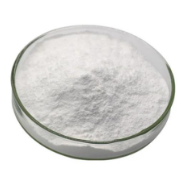
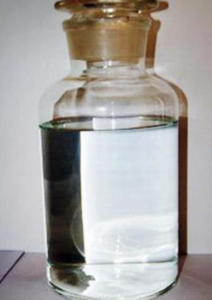
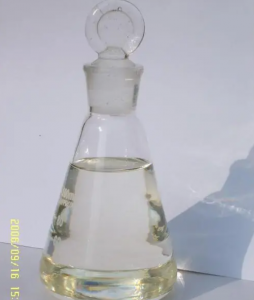
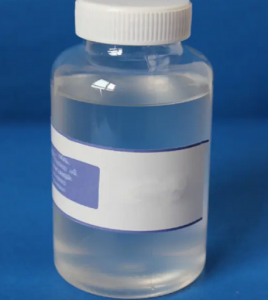
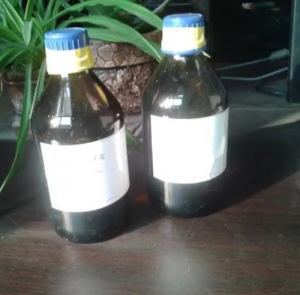
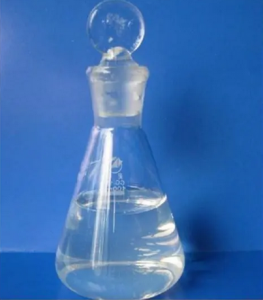














 online service
online service +8613866722531
+8613866722531

 +8613866722531
+8613866722531